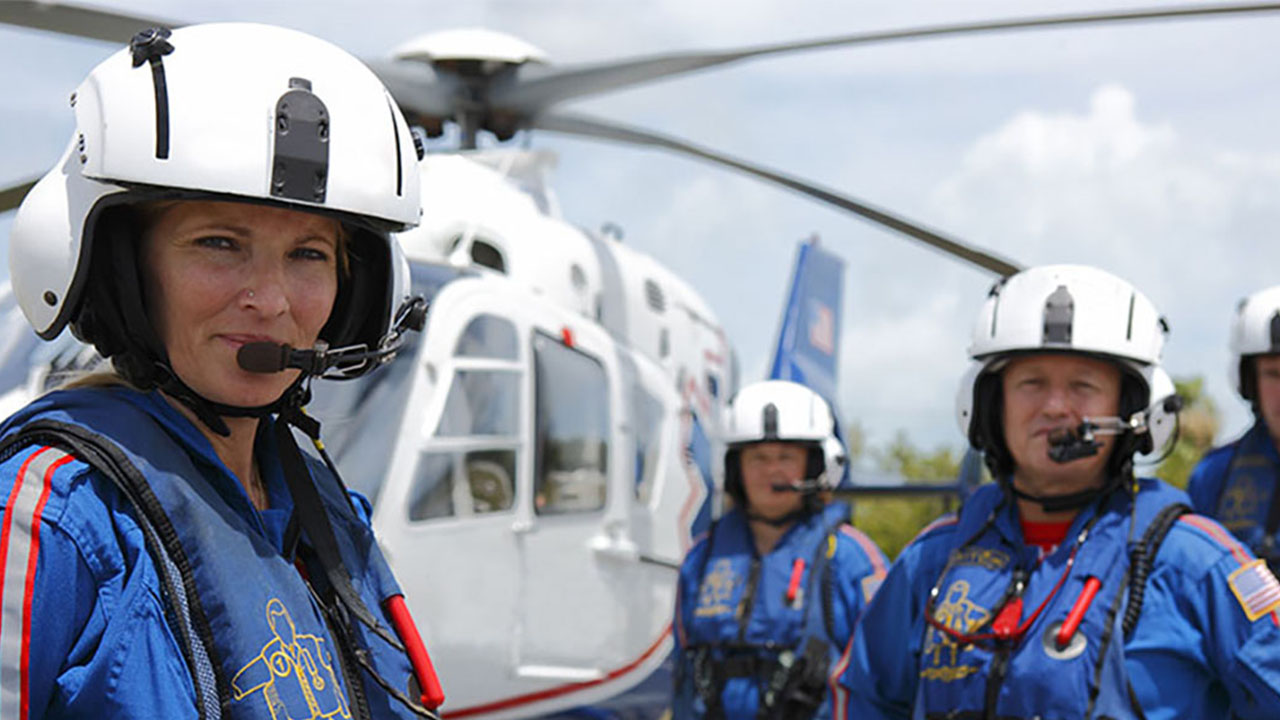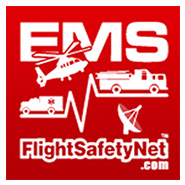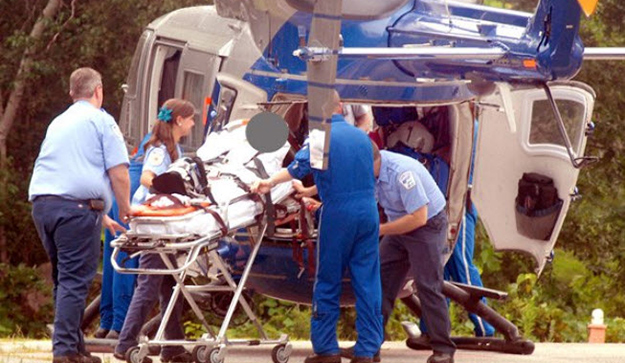— Flight Interviews are Like a Sick Joke
A “joke” that goes something like this . . .
Hey [insert your name],
You know all the blood, sweat, and tears you put into earning your paramedic, pilot or nurse qualifications?
The money, the time, and the sacrifice?
Well, it pretty much all comes down to the next one hour of your life.
Don’t be nervous now . . .
Your competition is only some of the best and brightest in the country.
WTH, right?
Could it seem any more intimidating? Unfortunately, the answer is yes. Because it’s not a joke. It’s a fairly realistic assessment of what it’s like to flight interview, and what’s at stake.
If you add up all the time, expense and effort you put into earning a flight interview, it gets really scary, really fast!
A lot is riding on one interview.
How do you alleviate the stress of a flight interview? How do you approach a flight interview from a position of strength and confidence?
This article will get you started.
Three things you must do in any flight interview
#1 Be Memorable
You can be the most qualified candidate of the day, and if your flight interviewer doesn’t remember you, it makes absolutely no difference.
A lot of my EMS Flight Safety Network coaching students worry about “messing up” during their flight interview. It’s a natural concern. I understand it. I get it. But here’s the reality I hope puts you more at ease.
“If you completely mess up a portion of your flight interview, it can easily work to your advantage (assuming you do the rest really well).”
The reason is simple.
Your “mess” is memorable.
At first this seems counter-intuitive, but it’s really not. Follow me on this: If your interviewer doesn’t remember your name or anything about you, that’s actually worse than a goof that brings you top of mind after the interview.
My point is simple.
Be memorable.
The worst thing you can do in a flight interview is what I call the “cookie cutter” answer session. Here’s what I mean: Go in, make eye contact, smile and start listing off your qualifications, courses taken, certifications and worldly good deeds.
Are you still with me? Because I know how boring the last paragraph is. That’s the point.
Don’t be boring.
Why is boring so bad? Two reasons:
Your comments are likely nothing more than a re-hash of your resume (which your interviewer already has) and you sound just like everybody else . . . Forgettable.
You have to be memorable.
#2 Tell a Story
Do you remember “Show and Tell” from grade school?
Dragging your favorite toy into school and telling all your friends about it?
I do.
And if you can remember your own “show and tell” experience, it can help you in a flight interview.
I remember my friends stories as much as my own.
Cars, trucks, dolls, games . . . all the props helped to tell a great story.
That’s what you need to do in a flight interview.
Tell a great story.
But not just any story. Your story. And like I mentioned before, you want to do it in a way that makes you memorable and unforgettable. Tell your story in a way that keeps you top of mind with your interviewer.
How do you do this?
The best way is to start by being a good listener. Pay attention to what your interviewer (or interviewers) say about themselves. Look for ways to tell your story in ways it relates to their background and experiences. If you can find common ground between your background and your interviewer’s background, you’re on the right path.
When I coach EMS Flight Safety Network clients on how to prepare for a flight interview, I always recommend getting more than one story ready for a flight interview.
This is really easy to do.
Remember, your story is about you. You’re the subject matter expert. You already have all the information you need. You simply need to practice and polish to perfection. Get straight in your head how you want to present yourself during the flight interview.
Another tip is using what I call concrete nouns in your story.
What’s a concrete noun? Any person, place or thing that lends itself to a vivid picture.
Concrete nouns matter because words matter. Using the right words makes a big difference. Any time you can paint a picture with concrete nouns, it makes your story easier to remember. It puts you on the right path for a successful flight interview.
Here’s a quick example of a concrete noun:
Purple cow.
When you thought of purple cow, did you see the picture in your mind? Or did you see the letters — P-u-r-p-l-e C-o-w — in your mind?
If you’re like 99% of humans, you saw a picture of a purple colored cow. That’s the point of the example. Pictures are what we remember. Pictures are how we think. The more times you can tell your story with memorable and concrete pictures, the greater the chance your story will be remembered.
Keep these tips in mind when developing your personal story for a flight interview.
#3 Connect with Your Interviewer
Do you know what radio station everyone in America is tuned into right now? Have you ever heard of WIIFM?
Because I guarantee you’re listening too. You, me and everyone else we know.
WIIFM is the “What’s In It For Me” station.
If you’re human, you’re tuned in to “What’s In It For Me.”
Here’s the point:
So is your interviewer. He or she is tuned in too.
And if you want to connect with your interviewer, you need to make some of the interview about her.
Connect with your interviewer by asking questions about their experience and background. Then slam dunk the connection by relating your story to their background.
All the above may sound a bit confusing if this is your first exposure to these techniques. But I can tell you from personal experience, and more importantly from the experience of my coaching students, the techniques work like gangbusters.
Once you master these flight interview techniques (and a couple more), flight interviews almost become unfair.
Almost . . .
If you’re looking to take your interview skills to a higher level — a level you’ll need to reach to compete in a flight interview — remember to be memorable, tell a story and connect with your interviewer.
Do you have a flight interview in the near future?
I schedule about three free flight audits a month. What’s a flight audit?
It’s a 20-minute free phone call where I answer your most pressing question about your upcoming flight interview, and we both get a chance to see if we’re a good fit to work together.
If you have a flight interview coming up in your near future, you can request a flight audit by emailing me here: ask @ flightsafetynet dot com. Please remember to put “Flight Audit” in the subject line. First come, first served.
Got a flight interview tip of your own? Share in the comments section.
Join the Crew Newsletter here:
[shortcode-variables slug=”optin-form”]
Here is the podcast version of this article:


